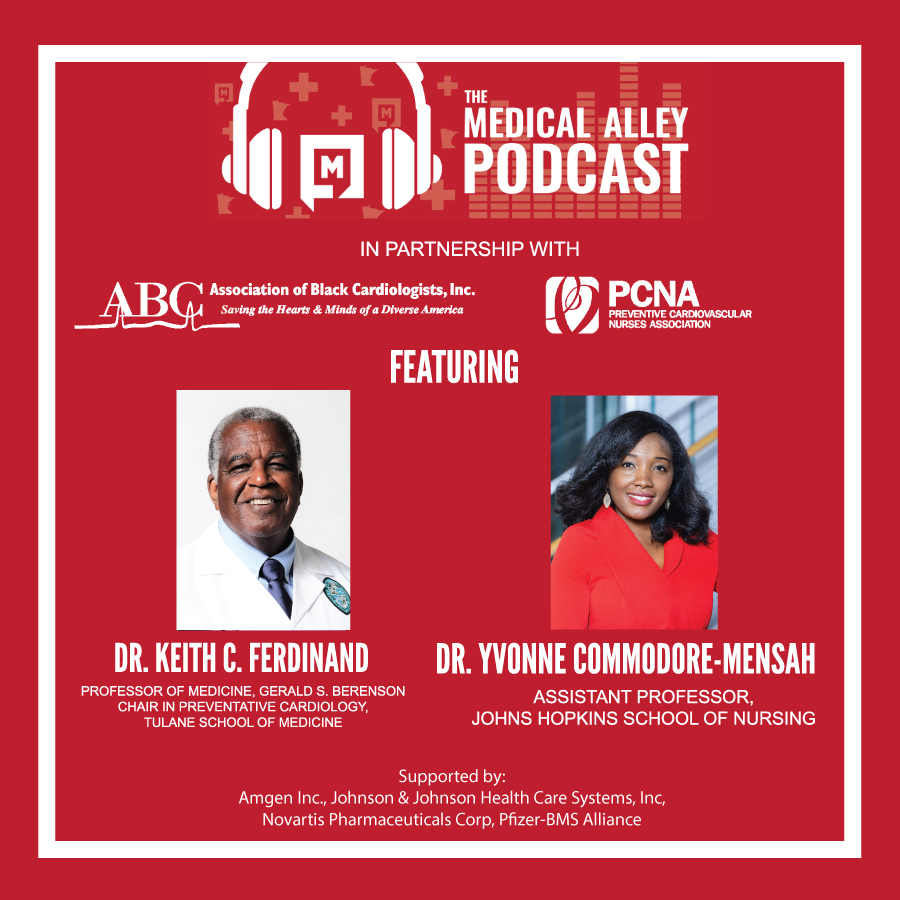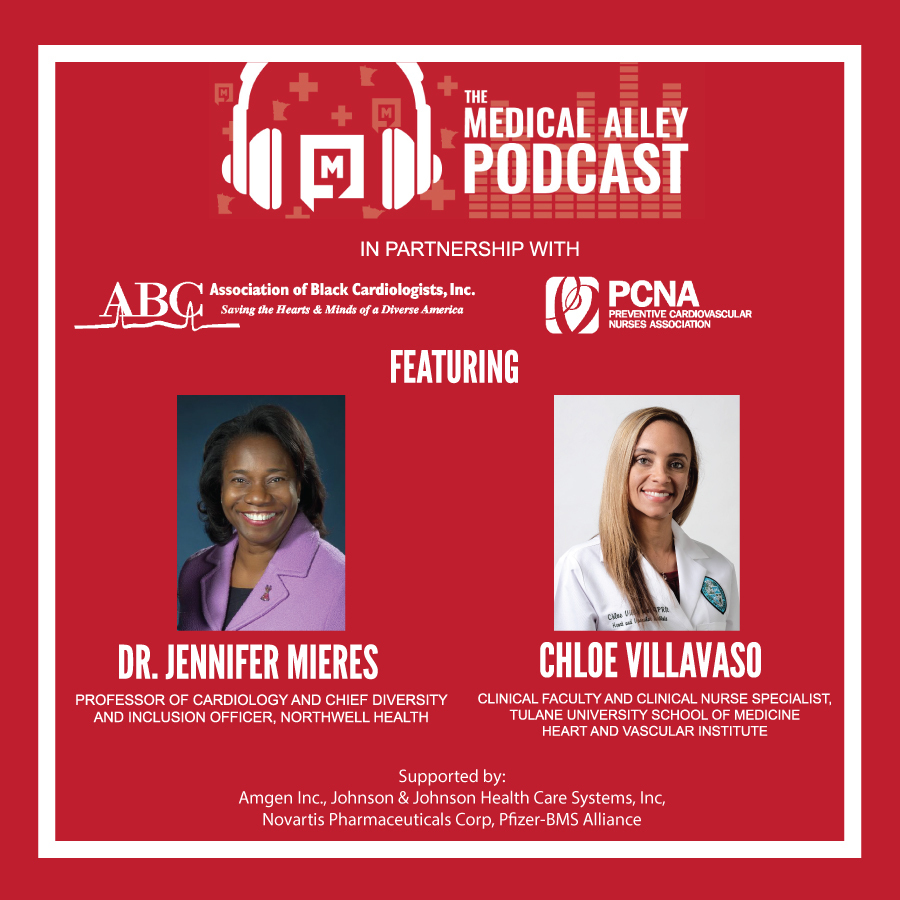Legislative Series: Race and Cardiovascular Disease and Stroke in America
PCNA Board President Sandra Dunbar authored this review of the Legislative Series on Race and Cardiovascular Disease in America.
In a democracy, we recognize that individuals have the opportunity to share their opinions and ideas with government officials at all levels. Our goals of eliminating health inequalities in cardiovascular disease require strategies at all levels including health policy. So how is PCNA actively involved to advance cardiovascular nursing and health equity with decision-makers?
Heart disease is the leading cause of death in the U.S.,1 and impacts people of color at a higher rate.2 PCNA partnered with the Association of Black Cardiologists (ABC) to produce a series of events geared to inform legislators and others in the community about the link between race and cardiovascular disease and stroke in the United States. The series, Race and Heart Disease in America, consisted of two podcasts and a live webinar focused on health equity and cardiovascular disease. PCNA and ABC worked with Medical Alley Association to develop and implement the program. Listen to the podcasts and view the recorded version of the webinar.
Podcasts – Race and Heart Disease in America: How We Got Here and Taking Today’s Pulse
The first podcast in the series included Keith Ferdinand, MD, FACC ,FAHA , FASPC, FNLA, representing ABC, and PCNA board member Yvonne Commodore Mensah, PhD, MHS, RN discussing the history of health inequities in this country, beginning with the civil rights movement and moving through important moments that have reinforced inequality and mistrust in healthcare institutions.

The second podcast in the series, focused on key contributors to health inequity, included a conversation with Jennifer Mieres, MD from ABC, and PCNA board member Chloe Villavaso, MN, APRN, ACNS-BC, CMC, FPCNA. A continuation of the conversation in the previous podcast, the discussion centered on the access to preventive care and medical treatments. Examples highlighting the consequences associated with the lack of access to preventive care and timely and appropriate medical intervention were discussed. Audience members learned about access barriers to effective therapeutics, interventions, and diagnostics, including prior authorization and step therapy; the conversation also covered how challenges to preventive care and access to treatment differ from urban and rural/medically underserved areas.

Webinar – Race and Heart Disease in America: A Path Forward
The final component of the series is a live webinar on Feb. 9 (12 p.m. Central time). Race and Heart Disease in America: A Path Forward, builds on the content of the podcasts and focuses on the impact of heart disease, which continues to be a leading cause of death nationwide—particularly for Black Americans. Looking at both a historical perspective, and identifying solutions to tackle this ongoing problem, the program highlights strategies to start making meaningful change in healthcare. Register for the program here.
A video message from Ways and Means Committee Chairman Rep. Richard Neal will kick off the discussion by highlighting the work done on the chief tax-writing committee in the House of Representatives and oldest committee of the United States Congress.
The video will be followed by a panel discussion featuring thought leaders in the cardiovascular care space as they share their strategies to work towards the elimination of health inequities, including tested community approaches and policy solutions. Tune in to hear from Kevin Sneed, PharmD, Icilma V. Fergus, MD, FACC, and Karen Larimer, PhD, ACNP-BC, FAHA
The podcast and webinar series for legislators are available for nurses and others to view.
Health Equity Summit 2021
The legislative series is part of PCNA’s ongoing educational and strategic plan addressing diversity, equity, and inclusion in the organization and cardiovascular care. You can read about PCNA’s health equity position statement, and learn more about health equity and cardiovascular care by watching free video recordings of PCNA’s 2021 Health Equity Summit. Day 1 focuses on recognizing and defining health disparities and inequity and the effect of health disparities on cardiometabolic risk, and solutions for risk reduction. Sign up to watch Day 2 and learn about community assessments and tools to combat health disparities and social determinants of health, how systemic racism and implicit bias impacts patients and communities, and how to work towards preparing a diverse nursing workforce to meet the needs of a diverse healthcare patient population.
Make A Difference with PCNA Advocacy
If you’d like to get more involved in public policy to make a difference in the lives of your patients, stay connected with PCNA’s advocacy activities. Whether you are just getting started in sharing your voice, or are a seasoned professional with years of experience in communicating with leaders, you can always join PCNA in taking action on issues affecting our profession and our patients.
Advocacy can take place at the local, state, and federal levels, and PCNA recognizes leaders in these efforts through the annual Advocacy Award, which recognizes a PCNA member’s leadership in advancing cardiovascular disease prevention or advancing the nursing prevention. You can nominate yourself or another PCNA member.
The National Academy of Medicine’s release of The Future of Nursing 2020-2030: Charting a Path to Achieve Health Equity report underscores the responsibility of nurses and nurse leaders “to address structural racism, cultural racism, and discrimination based on identity, place, and circumstances within the nursing profession and to help build structures and systems at the societal level that address these issues to promote health equity.” The Race and Cardiovascular Disease and Stroke in America: Legislative Series (podcasts and webinar) is one way PCNA is stepping up to this challenge in collaboration with our esteemed partner, the Association of Black Cardiologists. Together we raise a concerted voice in this series as one step among many to promote health equity in cardiovascular care and health. We invite you to join these efforts through learning and advocacy.
References
- Virani SS, Alonso A, Aparicio HJ, et al. Heart Disease and Stroke Statistics—2021 Update: A Report from the American Heart Association. Circulation. 2021;143:e254-e743. doi: 10.1161/CIR.0000000000000950
- Centers for Disease Control and Prevention. About underlying cause of death, 1999–2020. https://wonder.cdc.gov/ucd-icd10.html. Accessed January 11, 2022.
